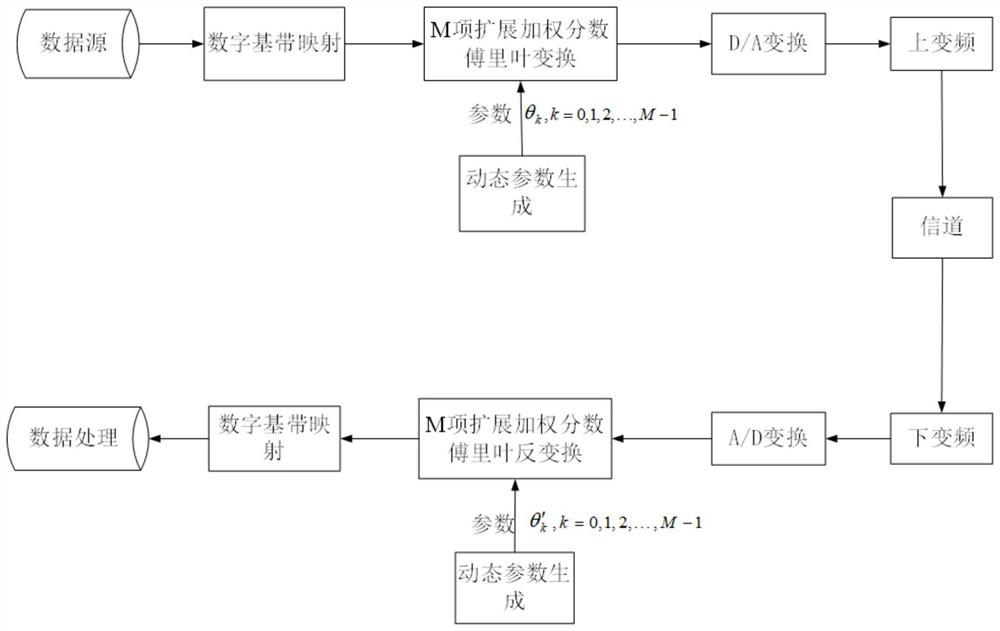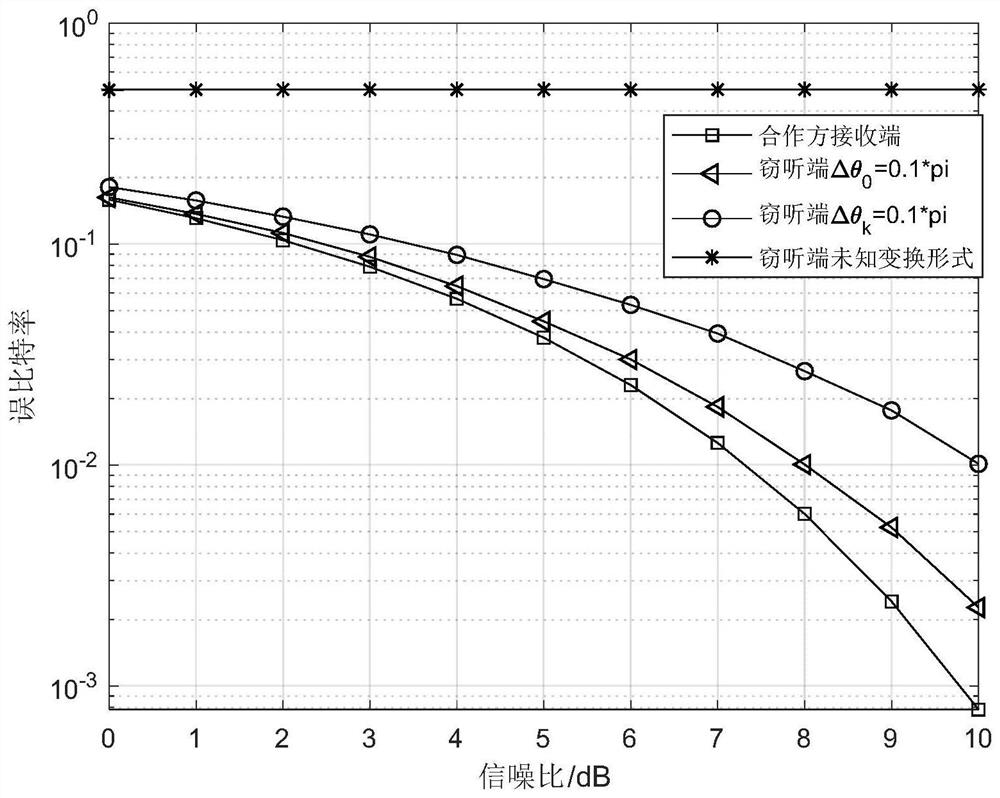Anti-detection transmission method based on extended weighted fractional Fourier transform
A fractional Fourier and transmission method technology, applied in the field of anti-detection transmission based on extended weighted fractional Fourier transform, can solve problems such as poor performance, and achieve the effect of improving anti-scanning ability, improving parameter dimension, and improving performance
- Summary
- Abstract
- Description
- Claims
- Application Information
AI Technical Summary
Problems solved by technology
Method used
Image
Examples
specific Embodiment approach 1
[0042] Specific implementation mode one: combine figure 1 This embodiment will be described. An anti-detection transmission method based on extended weighted fractional Fourier transform described in this embodiment, the method specifically includes the following steps:
[0043] Step 1. Perform baseband constellation mapping on the 0 and 1 bit data generated by the information source to obtain the modulated signal X after constellation mapping;
[0044] Step 2. Perform M-item extended weighted fractional Fourier transform on the modulated signal X obtained in step 1 to obtain a serial digital signal X T ;
[0045] The specific form of the M extended weighted fractional Fourier transform is:
[0046]
[0047] In the formula, Indicates that X is subjected to M-item extended weighted fractional Fourier forward transform, M is the number of weighted items, and M≥4, θ k is the kth transformation parameter of the forward transformation, X l The l-th basis function constructe...
specific Embodiment approach 2
[0059] Specific embodiment two: the difference between this embodiment and specific embodiment one is: in the step four, the analog modulation signal X obtained in step three T0 Perform up-conversion processing to obtain the signal after the up-conversion processing, the specific form of the signal after the up-conversion processing is:
[0060]
[0061] Among them, X T1 is the signal after up-conversion processing, f c is the carrier modulation center frequency, t is the timing mark, i is the imaginary number unit, Re[·] represents the real part, and e is the natural logarithm.
[0062] In this embodiment, for the signal X T0 Performing up-conversion processing means: converting the analog modulation signal X T0 Modulate to the corresponding carrier frequency to get the data X on the corresponding carrier frequency T1 .
specific Embodiment approach 3
[0063] Specific embodiment three: the difference between this embodiment and specific embodiment two is: in the step five, the receiving end performs down-conversion processing on the received signal, and the form of the signal received by the receiving end is:
[0064] Y R1 =HX T1 +N T
[0065] Among them, Y R1 is the signal received by the receiver, H is the channel state information matrix, N T is random noise.
PUM
 Login to View More
Login to View More Abstract
Description
Claims
Application Information
 Login to View More
Login to View More - R&D
- Intellectual Property
- Life Sciences
- Materials
- Tech Scout
- Unparalleled Data Quality
- Higher Quality Content
- 60% Fewer Hallucinations
Browse by: Latest US Patents, China's latest patents, Technical Efficacy Thesaurus, Application Domain, Technology Topic, Popular Technical Reports.
© 2025 PatSnap. All rights reserved.Legal|Privacy policy|Modern Slavery Act Transparency Statement|Sitemap|About US| Contact US: help@patsnap.com



